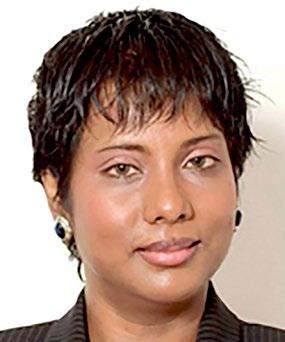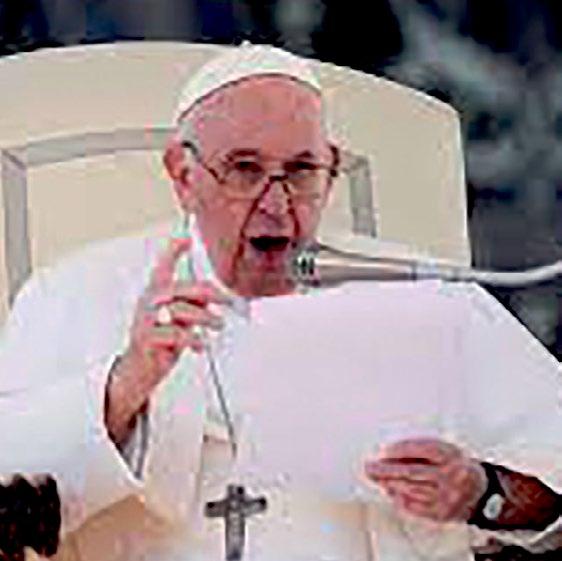
9 minute read
Could Prince Harry’s Loose Lips Sink His Own Immigration Ship?
Could Prince Harry’s decision to dish all, including perhaps foolishly sharing about taking cocaine, psilocybin mushrooms and weed before coming to America, and most recently in the US as recently as 2020, come back to bite possibly bite him in his royal behind?
The British and American press continues to press the issue and question essentially if he could lose his immigration status over his loose lips.
Advertisement
Harry, the Duke of Sussex in his memoir ‘Spare,’ admitted using cocaine and psilocybin mushrooms, and smoking weed. In an effort to perhaps cleanse his soul, he revealed through his ghost writer that he smoked weed in high school; after his first date with his now wife, Meghan Markle in 2016, and most recently in 2020, after he had moved to the US and while he, his wife and little son were living at Tyler Perry’s LA home during the lockdown while house hunting.
“Late at night with everyone asleep, I’d walk the house, checking the doors and windows. Then I’d sit on the balcony or the edge of the garden and roll a joint,” he stated in the memoir of his most recent weed smoking episodes after moving to the US.
Harry also opened up about using other drugs like cocaine, ketamine, and psilocybin mushrooms. In fact, he claimed he was tripping pretty hard at a party at actor Courteney Cox’s house when a garbage bin started looking like someone’s head. He wrote: “I stepped on the pedal and the head opened its mouth. A huge open grin. I laughed.”
The admissions have triggered a series of questions over how his drug use could possibly impact his immigration status. While it is unclear what visa exactly Harry is here on, since his wife is a US citizen and could easily sponsor him, there is speculation that he is here on an O visa, which is usually granted to people with “extraordinary abilities,” such as athletes or people in motion picture or television industry. Such visas usually come up for renewal after 3 years.
Also, back in 2021, The Times reported that though Prince Harry is eligible to immediately become a U.S. permanent resident and subsequently a U.S. citizen, he will not pursue permanent residency and citizenship in the United States.
That news let to both the Daily Telegraph and the Daily Mail speculating last week in a flurry of news articles that Harry’s admitted drug use in his new memoir could threaten his American residency.
“Harry could be barred from the U.S. ... after his admission he has taken drugs,” speculated The Daily Mail in a headline. Then George Washington University immigration professor Alberto Benitez, was quoted by the Daily Telegraph in a headline that screamed: “Prince Harry ‘should have been denied US residency’ over drug use revealed in memoir.”
Benitez was quoted as saying the son of King Charles, III, would have been asked about his prior drug use upon his application to reside in the United States with his American wife, Meghan.”
If he was “truthful in his answers, he should have been denied,” insisted Professor Benítez, director of George Washington University’s Immigration Clinic. If he lied, his visa could now be revoked, Benítez told The Telegraph.
Tiana Lowe, a commentary writer for the Washington Times, was more dramatic, leading with a piece on January 8th ahead of the official release of the ‘Spare’ memoir with the headline: “Biden should deport Prince Harry to kick off immigration crisis crackdown.”
In it, she claimed that the Duke of Sussex “almost surely lied to immigration authorities about his prevalent use of Schedule I drugs and Schedule II narcotics.”
“If Biden is serious about cracking down on the country’s current immigration crisis, there would be no better way to signal his seriousness than to deport a high-profile, wildly privileged prince who, if he did indeed lie to immigration officials, committed a felony,” she stated.
So, what does the O-Visa law state? According to US authorities, typically applicants with illegal substance history would be denied a visa. But entry is granted on a case-to-case basis.
US immigration rules state an individual’s ‘current and/or past actions, such as drug or criminal activities . . . may make the applicant ineligible for a visa’.
Still U.S. Citizenship and Immigration Services and the U.S. Department of State continue to intensify their focus on alcohol and drug use as they relate to immigration processing. Attorney Michael Skinner of the Skinner Law Firm writes that “under 8 U.S.C. 1182, any alien who is determined … to be a drug abuser or addict, is inadmissible.”
He further added: “When a USCIS or consular officer suspects an applicant is a drug addict or harmful alcoholic, the officer will likely refer the applicant to a civil surgeon for a medical review.
If the civil surgeon concludes the applicant is a drug addict or harmful alcoholic, any application for a green card or visa will be denied.
Which means that if Harry had owned up to his drug usage earlier, he may have been denied residency, as anyone seeking residency is asked a series of questions pertaining to their criminal and drug history.
But Skinner also notes that “even if a person is already in the United States, he or she could be deported. Under 8 U.S.C. 1227(a)
(2)(B)(ii), ‘any alien who is, or at any time after admission has been, a drug abuser or addict is deportable.’”

So, will his own admission make it harder for the Royal Prince to stay in the US? Professor Benítez, claims, officials may have already cut Harry some slack because of his status as a member of the royal family.
“If it was ‘Fred Jones’ and he had this kind of a [drug] background ... he’d have a lot more scrutiny,” Benítez surmised.
“Many Green Card holders and Permanent Residents have been deported to countries where they never lived for possessing drug paraphernalia,” added Attorney Allen Orr Jr. “They are mostly black and brown immigrants from heavily policed areas. They should be treated with the same grace as the Duke Of Sussex.”
And I agree. Maybe, if he was Haitian or African, he would be for sure. Harry’s millions earned just for airing his dirty laundry is enough to buy him the best immigration attorney anyway. That’s Royal, White privilege for you.
The writer is publisher of NewsAmericasNow.com – The Black Immigrant Daily News.

Medical Marijuana Is Legal Recreational Marijuana Is Illegal
Only use medical marijuana at home to avoid legal problems

BY SIR RONALD SANDERS
“
Being homosexual is not a crime. We are all children of God, and God loves us as we are and for the strength that each of us fights for our dignity.” Those words were spoken by Pope Francis, easily the most radical pontiff that the Roman Catholic Church has ever had.
The Pope was speaking in an interview with the Associated Press that was published on January 25th, ahead of a planned tour of two African countries, South Sudan and the Democratic Republic of the Congo (DRC).
The African continent ranks among the most homophobic regions of the world. Apart from South Africa, Mozambique and Angola, which are countries whose governments and peoples are most tolerant of homosexual rights, the majority of African nations rate equally with the intolerant governments of Russia, Afghanistan, Saudi Arabia, Iran and Iraq.

Throughout his papacy, Pope Francis has advocated a less doctrinal policy approach for modern Catholicism. Francis is a man of his time, determined not to harden the Church’s anachronistic positions in times, which have changed, with a greater emphasis on human rights, including gay rights. In the interview with the Associated Press, he emphasised the Holy See’s position that laws that criminalize homosexuality outright are “unjust” and that the Church must work to put an end to them.

He did not spare Bishops of the Church who support laws that criminalize homosexuality. He said that they need to “have a process of conversion” and should apply “tenderness, please, as God has for each one of us.” Whether he has opened the eyes, ears and hearts of the controlling hierarchy of the Church is left to be seen.
What is certain is that Francis has succeeded in humanising the face of the Church which, for centuries, imposed repressive rules on its followers that, politically, supported colonialism, imperialism and racism. In a socio-economic context, its rules on abortion, caused suffering and hardship for poor communities around the world, particularly in Ireland and Latin America where Catholicism dominated.
The impact that his approach has achieved is evident in the leadership of Ireland and in parts of Africa. The current Taoiseach, or the head of government, of Ireland is Leo Eric Varadka who is the child of an Indian father and an Irish mother, and is a declared homosexual. Many prejudices –both racial and religious – were overcome with his election, in a remarkable tribute to the openness of the Irish people to change. But, the influence of Pope Francis, now completing a decade as a changeagent of the Church, contributed immensely to the freedom of thinking and attitudes in Ireland.

Similarly, his papacy has had a beneficial effect in Africa where recent statistics show 2.1 per cent growth in Catholic followers between 2019 and 2020. Out of a global population of 1.36 billion Catholics, 236 million are African or 20% of the total. Reports indicate that Catholicism is witnessing a “youth bulge” in Africa. This follows the effective transmission of Pope Francis’ message that churches, religious groups and governments show solidarity with young people. He calls them “the church of now.”
In November 2022, during a synodal consultation with African youth, he denounced the exploitation of Africa by external forces and its destruction by wars, ideologies of violence and policies that rob young people of their future. That message by the Head of a Church, which conspired with many authoritarian regimes in Latin America, Europe and in parts of Africa and Asia, to exploit and repress their people, has a powerful appeal.
Nonetheless, his visit to South Sudan and the DRC will not be without its problems. In the interview with the Associated Press, Pope Francis acknowledged that in Africa and other parts of the
“Being homosexual is not a crime,” says Pope Francis. (PHOTO: Filippo MONTEFORTE/AFP) world, there needs to be change in relation to anti-homosexual laws. Responding to the question, “Can the Church contribute to repealing these laws?”, he was unequivocal, saying: “They have to do it. What happens is that they are cultures in a state and the bishops of that place, although they are good bishops, [they] are part of the culture and some still have their minds in that culture. The bishops also have [to undergo] a process of conversion.”
Some of these reluctant Bishops exist in South Sudan and DRC as they do in other parts of Africa and the Caribbean. Having been nurtured in a culture of
When lovers part ways to go to foreign climes, there is always a mixed bag of emotions, fears, doubts, anticipation and sorrow. The person who is leaving is looking forward to new adventures, even though the pain of leaving a loved one behind is pervasive.
As for that lover who’s left behind, the emotions and anguish are magnified, surpassed only by doubts, for he or she doesn’t know if the partner will lose feelings or find somebody else and never return.
“Cause I’m leaving, on a jet plane, don’t know when I’ll be back again.” That song, ‘Leaving On A Jet Plane,’ has haunted countless couples who’ve experienced the pain of losing someone to a long distance relationship. It gives a different meaning to the term dearly departed.
“Why you crying dear?” intolerance, they find adjustment to a new dispensation difficult.
“My boyfriend is dearly departed, he just left for foreign.” Can the relationship work, or are they doomed to fritter away, dispersed like dandelion dust or melted away like an ice cube in the sun?
Distance and time do take their toll on even the strongest love, and after a while, they prove to be too much for mere mortals to endure.
There’s an old Jamaican saying: ‘Love and sea water don’t mix.’ That chasm, that abyss, that great divide, that void, that enormous distance, filled only with the lapping waves of an infinite ocean, will override any feelings of love that now exist.
Although, as Pope Francis pointed out, “In the catechism of the Catholic Church it says that people of homosexual tendency have to be welcomed, they do not have to be marginalized”. He makes it clear that “Every man and woman has to have a window into his life where he can pour his hope and where he can see the dignity of God. And being gay is not a crime. It’s a human condition.”
Throughout most of the world, societies and governments have accepted that “being gay is a human condition.” The result is that members of the LGBTQIA community have attained high positions in all sectors of society. While there may be little hope in authoritarian countries, such as Russia, Afghanistan and Iran, it is past time for more progressive societies to heed the counsel and wisdom of Pope Francis, who has emerged as an enlightened, caring example of the best of humanity.
I had the privilege of working with a former Justice of the High Court of Australia, Michael Kirby, when we were members of the Commonwealth Eminent Persons Group, which was commissioned by Heads of Government to










